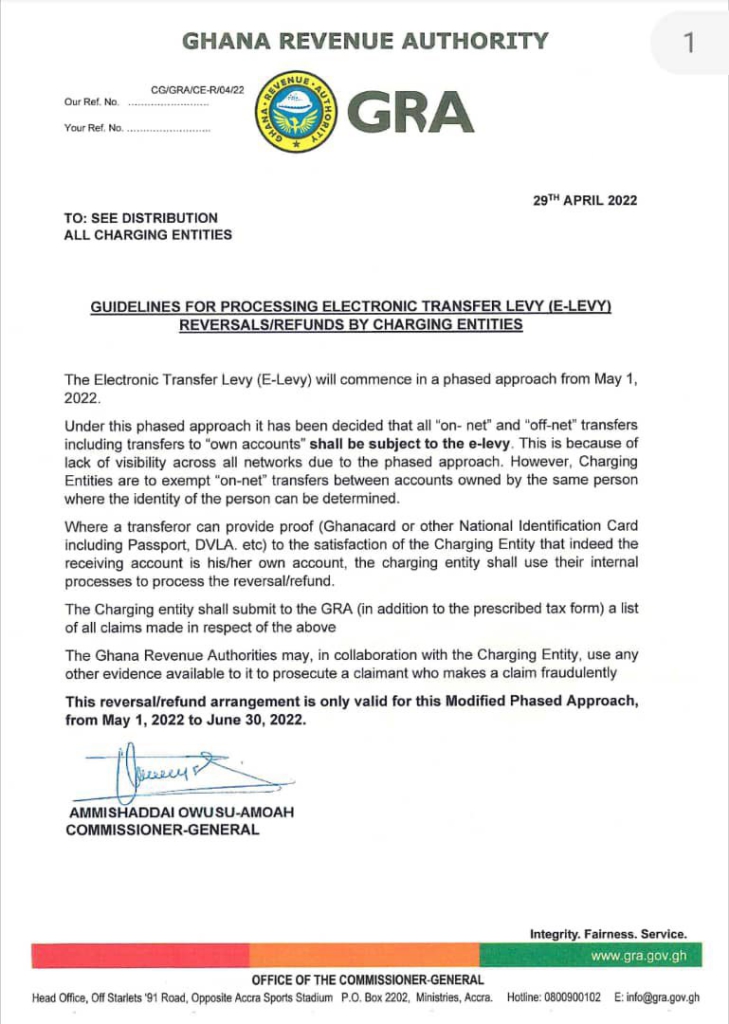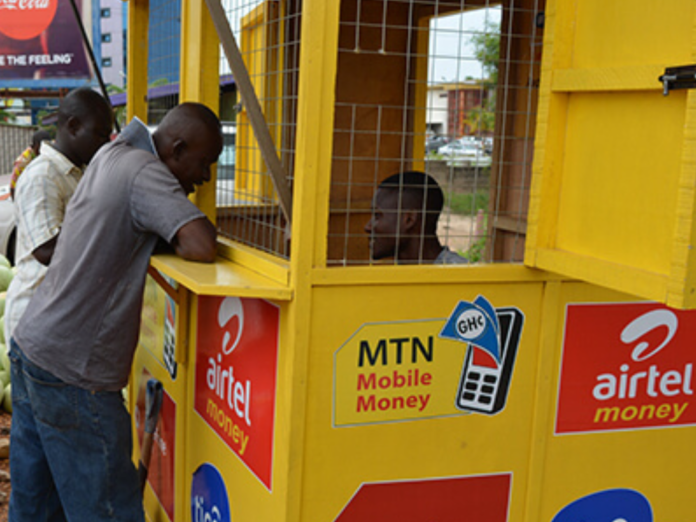The Chief Executive Officer (CEO) of MobileMoney Limited, a subsidiary of MTN Ghana, Eli Hini has revealed the country will continue to face challenges with the implementation of the Electronic Transaction Levy (E-Levy) until July 1.
He says this is largely due to the modified approach which is currently being used by the charging entities, a situation that has given rise to anomalies in the amounts taxed per transaction.
The telcos, banks, Payment Service Providers (PSPs) and specialised deposit-taking institutions are charging the levy from their individual systems, following the extension of the SIM registration exercise which was originally set to end in March 2022.
In an interview on Joy FM’s Super Morning Show, Tuesday, Mr Hini said until all entities are integrated onto a single platform, after the completion of the SIM registrations in July, the challenges may continue.
However, efforts have been made to provide MTN MobileMoney customers with enough information to guide them at the points of initiating transactions, adding that customers who have been wrongly taxed can lodge complaints for refund.
“Now, the implementation that will now derive the use of the SIM registration using the GRA’s common platform is now the July one. So essentially, that is when we get the full scope and then we are able to complete the identification on either party…that is why for this particular modified approach, the refund process will be different from when we go into the full implementation because the conditions will be different.
“With the modified approach that we’ve implemented, we do not have visibility on the other side; so, that scenario may arise. Usually, you look at the scenarios and you look at the percentage occurrence. Usually, for the kinds of transaction trends we’re seeing, people will normally not send money to themselves on another wallet; it will be to their bank account or from their bank account to their wallet.
“So, that scenario itself is a very minor part of the total volume. Once we put in an efficient refund process, it should be able to handle the numbers that will be on that side until we are fully operational on July 1 with the full scope,” he stated.
The E-Levy was implemented on May 1. Electronic transactions above ¢100 are now being taxed at a rate of 1.5%.
However, some transactions below the threshold have been taxed since the implementation began.
The Ghana Revenue Authority (GRA) has, however, noted that steps are being taken to address the challenges.
“We have shared some guidelines to the charging entities on how to reverse those legitimate transfers that are not supposed to attract the levy.
“The second category also relates to that same off-net where people are sending below ¢100 and are being charged.
“That has come to our attention and we are in communication with the charging entities to look into that,” Head of Project Management, Isaac Kobina Amoako, said on JoyNews’ AM Show, Monday.
Refund/reversal of wrong charges
A statement issued by the GRA on Friday, April 29, stated that following the lack of visibility across all networks due to the passed approach, there will be a refund and reversal arrangement for all wrongful deductions.
This will cover the period for the modified passed approach between May 1 and June 30.
“However, charging entities are to exempt “on-net” transfers between accounts owned by the same person where the identity of the person can be determined.

“Where a transferor can provide proof (GhanaCard or other national identification cards, including passport, DVLA, etc) to the satisfaction of the charging entity, that indeed the receiving account is his/her own account, the charging entity shall use their internal processes to process the reversal/refund,” the statement added.
Meanwhile, “the Ghana Revenue Authority may, in collaboration with the charging entity, use any other evidence available to it to prosecute a claimant who makes a claim fraudulently.”

